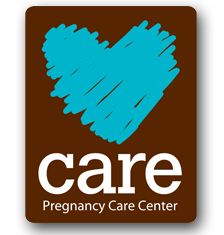CALL US: (615) 773-4673
What is Emergency Contraception?
Even if you’re using protection, there’s always a chance that you could get pregnant. Perhaps you’ve turned to emergency contraception to avoid an unplanned pregnancy.
But what happens if it fails? It’s important to understand your pregnancy options, so you can plan your next steps!
How Does Emergency Contraception Work?
Emergency contraception (also known as the Morning-After Pill) lowers the risk of pregnancy by preventing or delaying ovulation, but may also interfere with implantation resulting in the death of the embryo[1][2]. The way it works depends upon where you are in your cycle.
There are two common forms of emergency contraception: Progestin-only pill (Plan B One-Step®) and Ulipristal (ella®), a chemical cousin to mifepristone (part of the abortion pill protocol)[2][3].
How Effective is Emergency Contraception?
Plan B is most effective when taken within the first three days after unprotected sex. Ella can be taken up to five days after unprotected sex. However, research suggests that emergency contraception tends to be less effective in women with higher BMIs[4].
It’s also important to know that emergency contraception should not be used as a primary method of birth control.
What’s the Difference Between Emergency Contraception and the Abortion Pill?
Although they seem similar, emergency contraception and the abortion pill are not the same things.
While emergency contraception may work to prevent conception, all forms have the potential to interfere with the embryo’s attachment to the uterus. This is not a contraceptive effect, meaning preventing conception, but embryocidal, resulting in the embryo’s death. The way it works depends on where you are in your cycle.
On the other hand, the abortion pill always works to terminate the pregnancy and is the only one that can end a pregnancy once it is attached[1].
Can Emergency Contraception Cause Abortion?
Sometimes, conception (also called fertilization) happens, and an embryo forms but the emergency contraception prevents it from implanting properly in the uterus, resulting in its death[1].
It’s a good idea to take a pregnancy test before taking any form of emergency contraception because you could be pregnant from prior sex.
Risks and Side Effects of Emergency Contraception
Common side effects of emergency contraception include[4]:
- Dizziness
- Headache
- Fatigue
- Cramps or abdominal pain
- Nausea and/or vomiting
- Breast tenderness
- Delayed period (up to a week), heavier bleeding during your next period, or bleeding between periods
These side effects should be mild and only last a few days. However, if you experience significant lower abdominal pain after taking emergency contraception, contact your healthcare provider immediately to be evaluated for a possible ectopic pregnancy.
What to Do if Your Emergency Contraception Fails
If your period is delayed for more than three to four weeks, you may be pregnant[5]. Consider scheduling a free pregnancy test and free ultrasound at Pregnancy Care Center!
If your results come back positive, don’t panic. Our compassionate team is here to help you explore all of your pregnancy options so that you can make an informed and empowered decision! We will do everything we can to equip you to take your next steps with confidence!
Give us a call at (615) 773-4673 or make an appointment online today. All services are confidential and free of charge!
Please be aware that Pregnancy Care Center of TN does not provide or refer for emergency contraception or abortion services.
Sources
- Embryocidal Potential of Modern Contraceptives. AAPLOG. (2020, January 15). Retrieved from https://aaplog.org/wp-content/uploads/2020/01/FINAL-CO-7-Embryocidal-Potential-of-Modern-Contraception-1.20.20.pdf
- Physician’s Desk Reference. (2023, April 13). Ella Drug summary: Mechanism of action. Retrieved from https://www.pdr.net/drug-summary/?drugLabelId=1278
- Saritha, F., Aiswarya, N., Aswath Kumar, R., & Dileep, K. V. (2023, February 3). Structural analysis and ensemble docking revealed the binding modes of selected progesterone receptor modulators. Journal of Biomolecular Structure & Dynamics. https://pubmed.ncbi.nlm.nih.gov/36752314/
- Morning-After Pill: Emergency Contraception & Side Effects. Cleveland Clinic. (2022, July 1). https://my.clevelandclinic.org/health/treatments/23386-morning-after-pill
- Mayo Foundation for Medical Education and Research. (2022, June 3). Morning-after pill. Mayo Clinic. Retrieved from https://www.mayoclinic.org/tests-procedures/morning-after-pill/about/pac-20394730#
